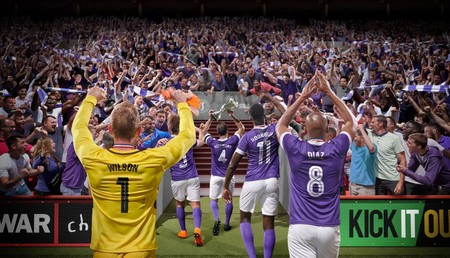In a gaming landscape where downloadable content (DLC) keeps triple-A titles popular for many years after launch day, it’s hard to believe there was once a shelf life for PC and console games. Thanks to online gaming, digital content stores, and even meme culture, scores of big-name games have only gone from strength to strength since launch.
Here are three of the biggest games that, even years on, are still pulling in the players. Whether it’s thanks to competitive scenes, embracing viral marketing, or just updating with regular content, these titles are still going to be considered industry giants in the years to come.
Fortnite
Fortnite wasn’t always destined to be the online deathmatch leviathan that never died. Launching with a co-op mode, developers Epic Games soon realized that there was more marketability in the third-person game’s battle royale mode.
In fact, along with PlayerUnknown’s Battlegrounds, Fortnite helped to launch what many thought would end up being a craze — the online battle royale revolution. It’s hard to believe that the colorful, crazy world that’s free to play (but offers stacks of paid upgrades) launched all the way back in 2017.
Since then, Epic has kept Fortnite healthy with a regular content stream and has leaned into its goofiness — to the point where even Family Guy’s Peter Griffin is a playable character. Fortnite embraced its weirdness and is all the stronger for it, becoming a multiplayer gaming icon.
Among Us
Among Us could well be a game that’s dropped off the radar for some, but its simplicity and marketability have helped to keep the ‘online werewolf’ popular.
Innersloth developed the imposter-sussing title to launch in 2018, where it initially gained traction online through streams and social media. Beyond the gameplay, Among Us quickly became a cultural oddity, launching ironic and unironic memes alike — all around a simplistic little title which, like Fortnite, is initially free to play.
Among Us has continued to gain updates and is still fresh in the minds of people who don’t even play it — parents across the West having invested in all manner of plushies, duvet sets, and more based around weird little space blobs.
Mario Kart 8 Deluxe
Mario is perhaps the most iconic mascot in gaming and Mario Kart, to this day, has such widespread appeal across all demographics – stoking millions of good-natured rivalries within families and friendship groups. There’s also a strong reason why Mario Kart 8 Deluxe is Nintendo’s biggest-selling game of all time – it’s absolutely bursting with content.
Selling almost 62 million copies by April 2024, the game initially appealed to Switch owners thanks to its expanded library of racers and tracks compared to its Wii U template. However, it was the release of the Booster Course Pass, with 48 brand new tracks and even a stack of new characters, that effectively doubled the game’s shelf life.
The online scene remains absolutely brimming with talented players — it never takes you long to match up with a full lobby.
To put things in perspective, Mario Kart 8 Deluxe launched in 2017, the same year as Fortnite!
With Nintendo’s Switch successor looming in 2025, it’ll be interesting to see how the Japanese giant manages to port its biggest success across — is backwards compatibility on the cards?
How can studios keep games rolling on?
Matching the longevity that the above franchises are enjoying is a dream for most studios. These games have monopolized online player counts and viewing figures and have capitalized on that with DLC, which appears to be a solid model for building games out for years to come.
Those against the idea of DLC claim that games should come fully-packaged at launch. However, by rolling DLC out for years to come, studios can listen to players’ wants and needs and attract more to come on board throughout its life cycle. After all, it’s not always easy to understand gamers’ needs on launch day. Much of the process is simply launching and hoping for the best!
However, gaming tastes are always changing. Even in the world of casino gaming, players are looking for more ways to stream their games rather than having to download apps — you must read this article over at TrustNPlay to get a taste for movements in that industry!
Otherwise, for true longevity in the streaming and digital content age, games studios simply need to listen and lean in. Launch day is now merely the start, rather than the end, of a game realizing its potential.










![[Rumor] Chrono Trigger remake or remaster could already be in development](https://vgleaks.com/wp-content/uploads/2026/02/chrono-trigger-150x150.jpg)


